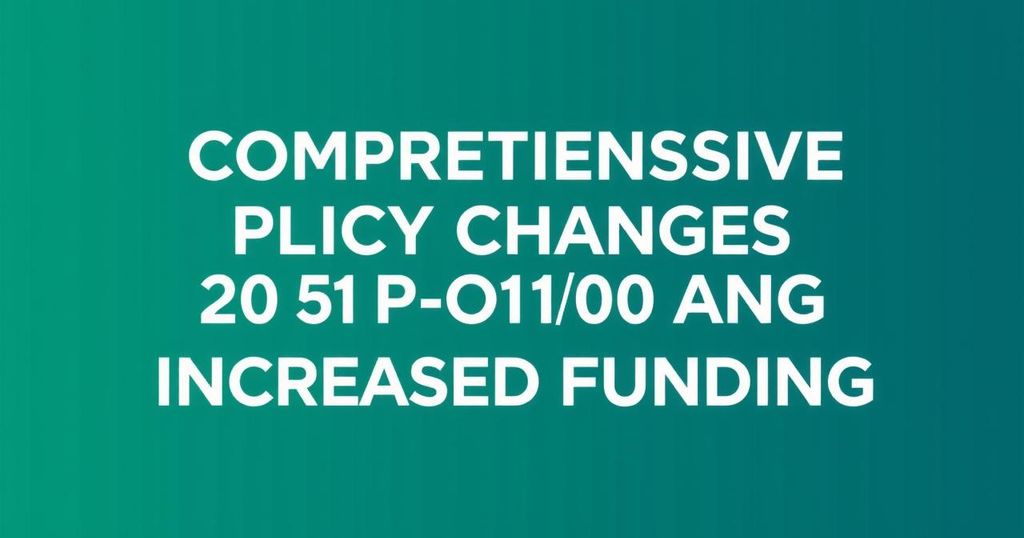COP29 in Baku emphasizes the urgent need to address climate change, with Bangladesh emerging as a prominent advocate. While financial support is crucial, it alone cannot remedy ecological losses or address the broader mental health impacts caused by climate phenomena. The long-term sustainability of ecosystems and the well-being of vulnerable populations demand a reevaluation of what truly supports climate resilience and action.
As COP29 convenes in Baku, the urgency to combat climate change has reached a critical juncture. Initiated in 1995, the Conference of the Parties represents a global initiative aimed at addressing the escalating climate crisis. Although discussions have persisted for decades, tangible progress remains inadequate. A priority has been establishing a global climate fund, yet these efforts have often been insufficient. Funds may assist in mitigating damage caused, but they cannot recover what has been irreparably lost.
Climate change functions as a slow-moving, detrimental illness, one that is often overlooked. Our current economic pursuits overlook long-term sustainability, leading to the decline of critical ecosystems. Bangladesh’s national bird, the magpie robin, has become increasingly rare, emblematic of the broader biodiversity losses we face. While climate funds could alleviate some costs, they cannot mend ecosystems or reverse the biodiversity loss resulting from our cumulative neglect.
Bangladesh has emerged as a proactive participant in the global climate discourse, particularly noted for its performance at COP28, where it successfully advocated for a $700 million fund aimed at addressing climate-induced loss and damage. As a nation particularly vulnerable to climate change, Bangladesh enters COP29 advocating for fair resource distribution for both adaptation and mitigation efforts while calling attention to the unfulfilled commitments of developed nations.
The physical manifestations of climate change are observable worldwide, with Bangladesh being no exception. Rising sea levels have inundated coastal regions, displacing millions, while erratic weather patterns disrupt agriculture and threaten food security. The World Meteorological Organization reported that Asia experienced 81 climate-related disasters in 2022, highlighting the extensive human and economic toll of climate-related phenomena.
Moreover, the impacts of climate change extend beyond ecosystems, adversely affecting mental health as well. Extreme weather events foster psychological distress, leading to increased incidences of conditions such as post-traumatic stress disorder and eco-anxiety. Vulnerable populations suffer the most, including women, children, and indigenous communities, necessitating strategies to bolster communal resilience in the face of climate-related mental health crises.
Biodiversity stands on a precipice as climate change accelerates habitat loss; the National Audubon Society warns that vital habitats could vanish if global temperatures rise significantly. Bangladesh strives to protect its biodiversity while aligning with initiatives aimed at safeguarding land and water resources. Investment in renewable energy and conservation measures are critical to preserving diverse ecosystems.
The repercussions of climate inaction have become increasingly salient, with a 1.1°C rise in global temperatures since pre-industrial times leading to severe weather events. The urgency emphasized by the Paris agreement to limit warming to 2°C must be reassessed, with experts cautioning that remaining below 1.5°C is imperative to mitigate catastrophic environmental collapse.
In a disappointing turn at COP29 and the G20, world leaders often prioritized economic issues over climate strategies, underscoring a concerning trend of disengagement from pressing climate dialogues. High-profile leaders opting out of critical discussions highlights a significant disconnect between rhetoric and actionable progress.
As global discussions on climate issues continue, it remains imperative that commitments transform into enforceable actions. Bangladesh’s determination to advance renewable energy and equitable financial frameworks for vulnerable nations illustrates a proactive approach to these intertwined crises. Proposed measures such as a tax on the super-wealthy in Brazil hint at pathways for sustainable financial solutions.
Despite considerable challenges, the prospect of viable solutions exists. Transitioning towards renewable energy and adopting nature-based strategies can alleviate climate impacts while fostering economic growth. Bangladesh’s leadership at COP29 serves as a compelling example of what is possible when a nation champions collective action. The fight against climate change transcends mere funding; it demands a comprehensive shift in how we value and interact with our planet. The ramifications of neglecting this responsibility extend beyond environmental degradation, threatening the very future of our planet and its inhabitants.
The article addresses the pressing issues related to climate change, highlighting the proceedings of COP29, a UN initiative formed to facilitate global dialogue on climate action. It underscores the inadequacy of funds alone in resolving the climate crisis, emphasizing long-term strategies that encompass mental health and biodiversity protection alongside immediate financial support. The context also reflects Bangladesh’s significant role as a climate-vulnerable nation advocating for critical resources and adaptation strategies amid prevalent global indifference to climate discussions.
In conclusion, combating climate change demands more than financial resources; it necessitates accountability and a holistic approach that values the Earth’s ecosystems. The current situation illustrates a glaring disconnect between global commitments and the actions required to mitigate climate damage. As faced by Bangladesh and other vulnerable nations, the true cost of inaction extends beyond environmental consequences, representing a significant disservice to future generations. Collective commitment to enforceable climate strategies is essential for achieving a sustainable future.
Original Source: www.newagebd.net






